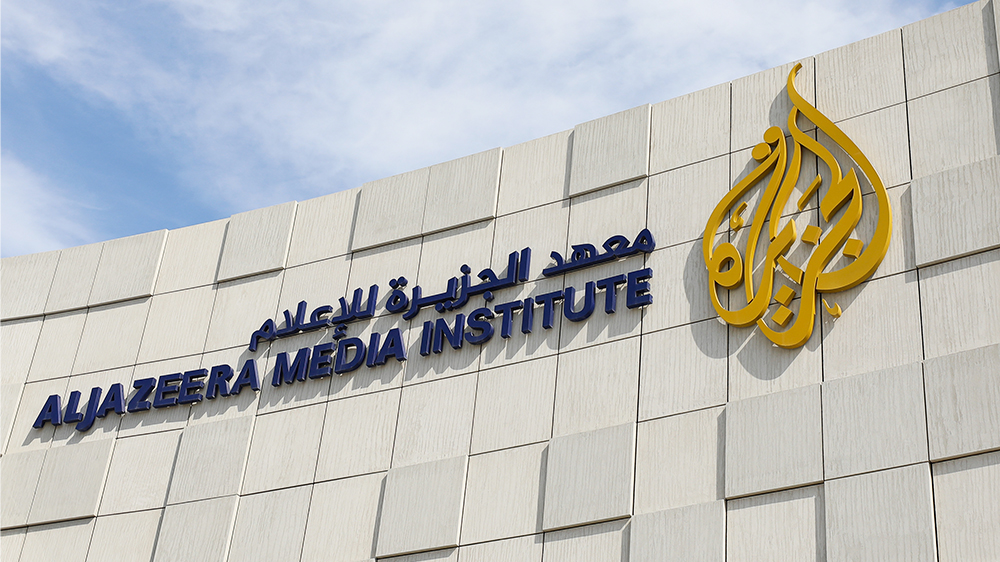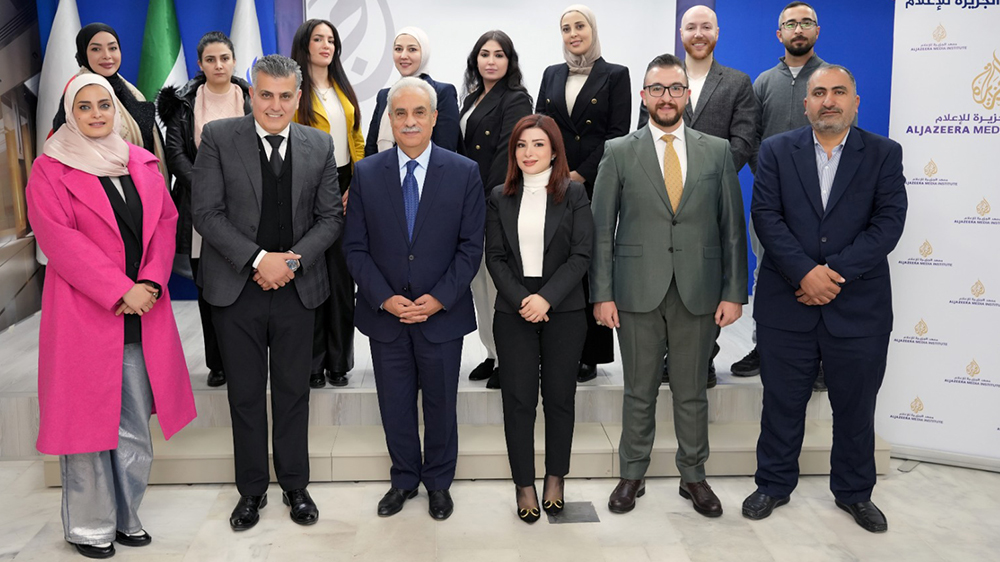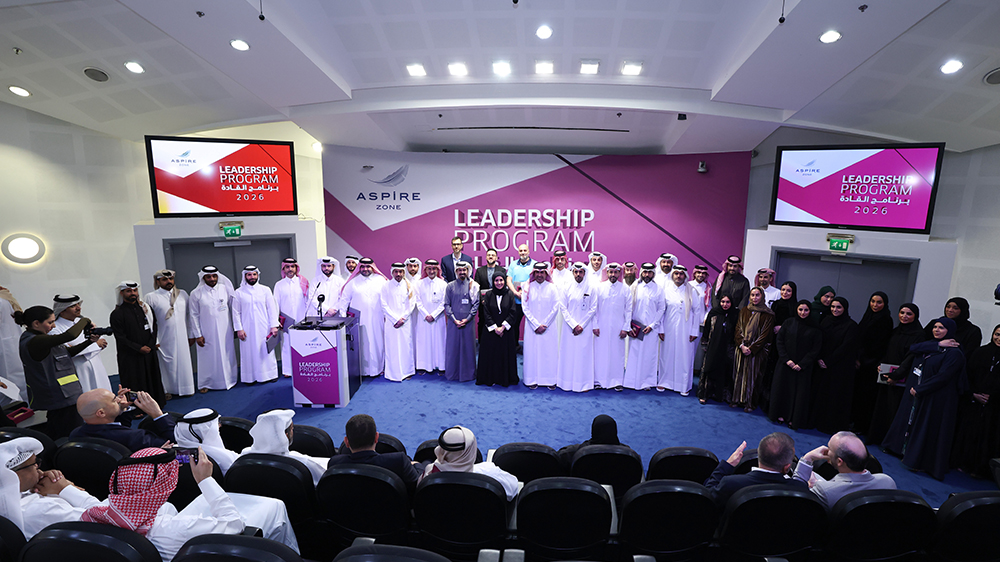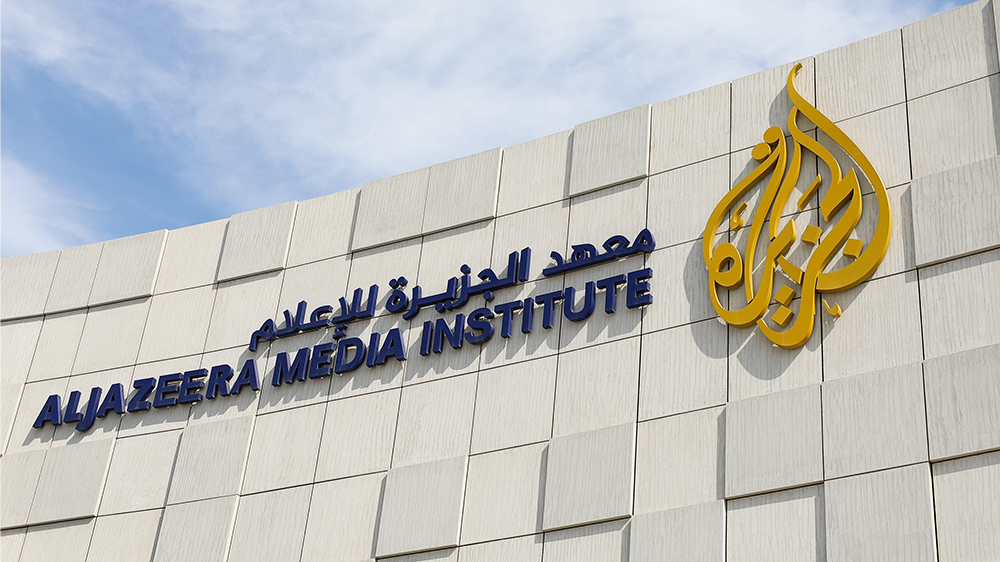News & Events
At the end of the AJMI Forum: Press stands on the brink of annihilation but still resisting
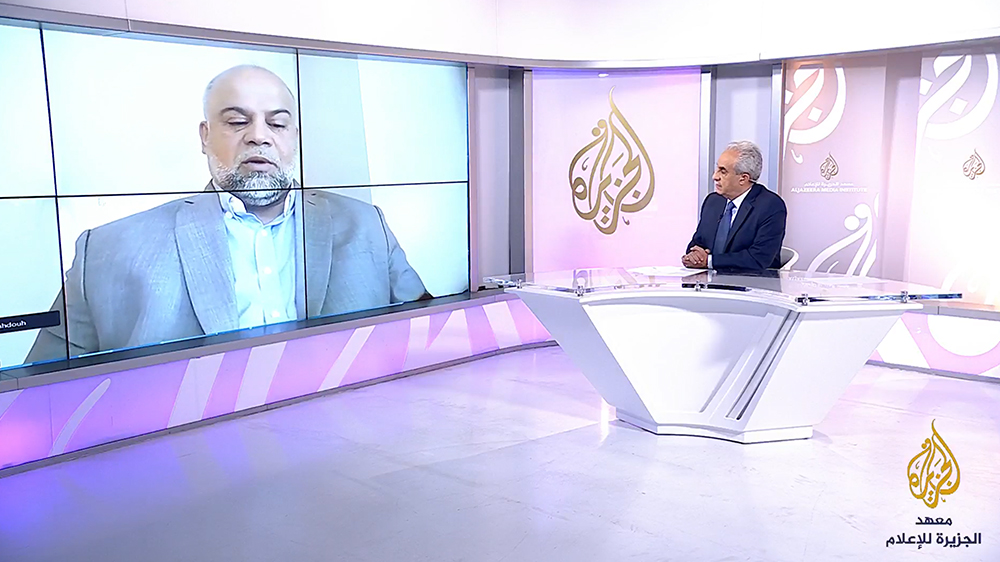
AJMI - Doha
Al Jazeera Media Institute wind up activities of its Forum "Journalism and the Question of its existence in the time of genocide and information disorder" which organized remotely on May 4th. and 5th., 2025, which was attended by a considerable group of media professionals and experts from around the world.
Over a course of two days, the forum discussed reality of journalistic work in light of wars, genocide and spread of disinformation, and raised fundamental questions about the ability of journalism to influence or accountability in a world where journalists are subjected to systematic killing, prosecution and denial of access to information.
In the opening speech of the forum, Dr. Mustafa Souag, Acting Director General of Al Jazeera Media Network, said: "We meet at a time when tragedy in Gaza transcends human tolerance, and global silence transcends complicity. "We confront the Press with a question of the justification for its existence, to see if it can still hold the crime accountable, or if it has just turned into ash blower." "Journalists are not well, but their message remains steadfast. Journalism is not a crime."
The forum also witnessed an interview conducted by Aljazeera presenter and program maker Mohammed Krishan with Al Jazeera's bureau chief in Gaza, Wael al-Dahdouh, who spoke about his personal drastic plight after the martyrdom of members of his family, and the inhumane conditions in which journalists work there.
"We have lost everything," he said. Office, home, security, but we have not lost our belief that what we are covering today is a documentation of the truth, and that archives we made the world will return to, one day."
Forum sessions varied to include topics of journalists' contributions to documenting war crimes, information verification, right to information and professional lapses that have distinguished Western media coverage of war on Gaza.
A number of training workshops were held at the end of every day sessions of the forum, which received remarkable interaction. The first workshop on the first day was “How do journalists document war crimes?” and attended by About 465 participants. On the second day, two workshops were held, the first workshop was “Introduction to Investigative Journalism”, attended by 488 participants, While the second workshop was "Media Bias" which held in English language for about 189 participants.

